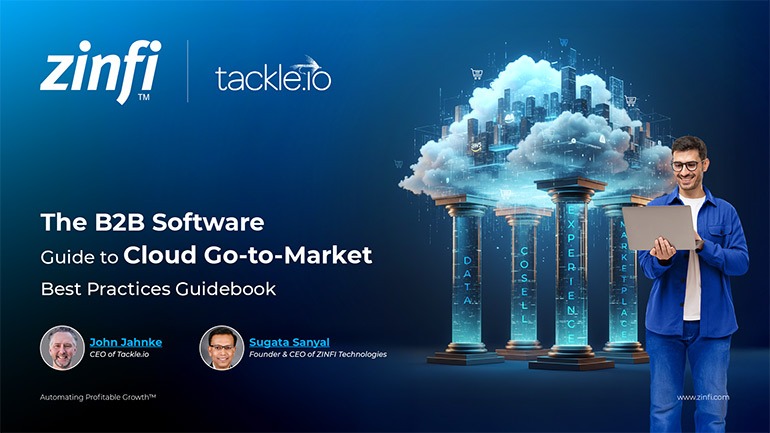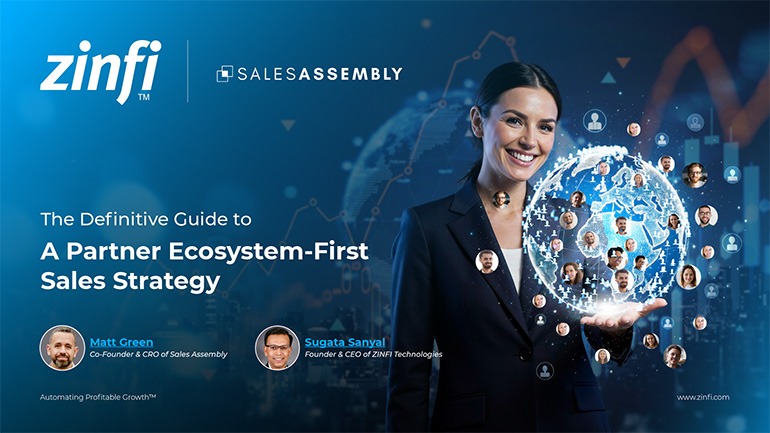Glossary - What is - Targeted Marketing
What is Targeted Marketing?
Targeted marketing is a strategy that involves identifying and focusing on a specific segment of the market to tailor marketing efforts and messages directly to that group. This approach helps businesses efficiently allocate resources by focusing on customers most likely to respond positively to their products or services. Companies can create personalized marketing campaigns that drive higher engagement and conversion rates by understanding a target audience’s demographics, behaviors, and needs.
Targeted marketing is crucial in partner ecosystem management and partner management automation. Businesses can identify critical partners that most likely benefit from their products and services by utilizing data analytics and automation tools. This enables them to create customized marketing strategies that resonate with these partners, enhancing collaboration and driving mutual growth. Automated platforms can help streamline this process by segmenting partners based on various criteria, ensuring that marketing efforts are efficient and effective.
Key Takeaways
- Enhanced Customer Segmentation: Targeted marketing allows businesses to break down their customer base into smaller, more manageable segments. By understanding the unique characteristics of each segment, companies can create tailored marketing messages that resonate with specific groups. This approach not only improves the effectiveness of marketing campaigns but also helps in building stronger customer relationships.
- Improved ROI on Marketing Campaigns: Businesses can maximize their return on investment (ROI) by focusing marketing efforts on a specific audience. Targeted marketing ensures that resources are spent on segments most likely to convert, reducing waste and increasing efficiency.
- Personalization and Customer Engagement: Targeted marketing enables a high level of personalization in marketing campaigns. Businesses can leverage data and insights to create personalized messages that speak directly to their audience’s needs and preferences. This personalization fosters deeper customer engagement and loyalty.
- Efficient Resource Allocation: Targeted marketing can help businesses allocate their marketing resources more efficiently. Companies can focus on areas promising the highest returns by identifying high-value segments. This targeted approach is supported by ZINFI’s Partner Marketing Management solutions, which help optimize resource distribution.
- Data-Driven Decision Making: Targeted marketing relies heavily on data analytics to identify and understand the target audience. Businesses can make informed decisions about their marketing strategies by analyzing customer data. ZINFI’s Analytics and Reporting capabilities provide insights that drive successful targeted marketing campaigns.
Summary
In summary, targeted marketing enhances customer segmentation, improves ROI, enables personalization, ensures efficient resource allocation, and supports data-driven decision-making. By leveraging these benefits, businesses can create compelling and impactful marketing campaigns that drive growth and success.
Key Examples
- Automotive Manufacturing: In the automotive industry, targeted marketing can focus on specific buyer segments such as luxury car enthusiasts, eco-conscious consumers, or first-time car buyers. For instance, a luxury car manufacturer might use targeted marketing to highlight premium features and personalized services to affluent customers, enhancing their appeal and driving sales.
- Consumer Electronics: Consumer electronics companies often use targeted marketing to reach tech-savvy consumers who are early adopters of new technologies. Companies can launch targeted campaigns for new product releases by understanding their preferences and purchasing behavior, ensuring higher engagement and adoption rates.
- Energy Production: Energy companies can use targeted marketing to promote renewable energy solutions to environmentally conscious consumers and businesses. By highlighting the benefits of clean energy and tailoring messages to specific segments, they can drive higher conversion rates and support sustainable practices.
- Financial Services: In the financial sector, targeted marketing addresses the specific needs of different customer segments, such as millennials, retirees, or small business owners. Customized financial products and services can be promoted to these groups, improving customer satisfaction and loyalty.
- Food and Beverage: Food and beverage companies can employ targeted marketing to cater to health-conscious consumers, gourmet food enthusiasts, or convenience-seeking individuals. Companies can increase their market share and customer base by creating targeted campaigns emphasizing specific product benefits.
- Healthcare Services: Healthcare providers use targeted marketing to reach patients with specific health conditions or demographic profiles. For example, a clinic specializing in diabetes care can tailor its marketing efforts to attract patients seeking specialized treatment and support.
- Information Technology: IT companies often target specific industries or business sizes with their marketing efforts. IT firms can offer tailored solutions and services by understanding these segments’ unique challenges and needs, driving higher adoption rates and customer satisfaction.
- Pharmaceutical Development: Pharmaceutical companies use targeted marketing to reach healthcare professionals, patients, and caregivers. By focusing on specific medical conditions and treatment options, they can effectively communicate the benefits of their products and drive prescription rates.
- Retail Industry: Retailers use targeted marketing to personalize shopping experiences for different customer segments. For instance, an online clothing retailer might create targeted campaigns for fashion-forward customers, offering personalized style recommendations and exclusive discounts.
- Telecommunications: Telecom companies employ targeted marketing to promote specific plans and services to various customer segments, such as families, businesses, or international callers. Addressing the unique needs of these groups can enhance customer satisfaction and retention.
Conclusion
Targeted marketing is a powerful strategy that allows businesses to focus on specific market segments, resulting in more efficient and effective marketing campaigns. Companies can create personalized marketing messages that drive higher engagement and conversion rates by understanding and addressing their target audience’s unique needs and preferences. This approach is precious in partner ecosystem management and partner management automation, where data analytics and automation tools can help identify critical partners and optimize marketing strategies.
Key benefits of targeted marketing are enhanced customer segmentation, improved ROI, personalization, efficient resource allocation, and data-driven decision-making. These advantages enable businesses to create impactful marketing campaigns that foster customer engagement, loyalty, and growth. Industry-specific examples from automotive manufacturing to telecommunications demonstrate how targeted marketing can be effectively applied across various sectors.
In summary, targeted marketing is essential for businesses seeking to maximize their marketing efforts and achieve sustainable growth. By leveraging data and automation, companies can create tailored marketing strategies that resonate with their audience and drive success.
Associated Keywords:
- Targeted Marketing Strategy
- Customer Segmentation
- Personalized Marketing














